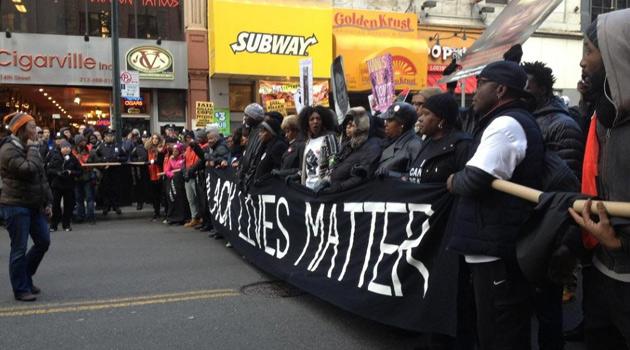Commentary: America's "Bloody Sunday" 50 years on - racism is not yet defeated

Fifty years ago, police in Selma, a town in the southern United States, attacked a peaceful demonstration by roughly 600 activists, most of them Black. Officers used tear gas and truncheons, and images flew around the world of one of the organizers, Amelie Obynton, lying unconscious on the ground.
The demonstrators were peacefully marching to commemorate the death of activist Jimmie Lee Jackson, whom officers had shot during a previous non-violent protest. They were also demanding equal voting rights for Black Americans.
Fifty years ago, millions of Black Americans were still not permitted to vote. "Right now, in 2015, 50 years after Selma, there are laws across this country designed to make it harder for people to vote," said US President Barack Obama during the anniversary of the march (a transcript of his full speech is here).
"As we speak, more of such laws are being proposed," the president continued. He was referring to dozens of laws proposed at the level of the individual states of the USA making voter registration more difficult, restricting the amount of time during which a ballot can be cast, increasing fees for participation, and generally targeting the most impoverished voters and those who have difficulty getting their right to vote restored after serving prison sentences – primarily, African-Americans.
"We know the march is not yet over. We know the race is not yet won," President Obama said at the commemoration.
More Black prisoners than there were slaves
A symbol of the deteriorating situation of American Blacks has become the thesis that currently there are more Blacks in prison, on parole or on probation than there were Black slaves at the beginning of the Civil War in the mid-19th century. Another similarly strong claim is that there are more young Blacks in prison than studying at colleges.
Another such claim is that there is a higher percentage of Blacks in American prisons today than were imprisoned in the Republic of South Africa during the time of apartheid. These claims are truly strong, but understandably must be taken with a grain of salt so that as not to remain at the level of pure propaganda – after all, not only has the population of the USA multiplied exponentially since the 19th century, but the number of Black college students and members of the African-American middle class, the "Black elite", is constantly rising.
According to the Blackdemographics website, the number of Black college graduates, for example, has increased by almost one million during the last 15 years. Nevertheless, it is the case that the number of Black prisoners does not correspond to the proportion of Blacks in the US population and probably does not even reflect the supposition that Blacks must therefore be committing more crimes.
On the contrary: The courts and police treat Black people differently. According to one statistic, for example, roughly the same percentage of Blacks and whites use drugs, but Blacks are imprisoned 10 times more frequently for drug offenses.
The American vs. the Czech ghettos
Even though there is no point in one-sidedly emphasizing only negative news about the state of the Black community in the USA during past 15 years, it is the case that problems are beginning to intensify once again for them in a certain direction. The high number of Black prisoners means a high percentage of broken families, of children growing up without their parents, an intensifying degree of poverty among young Blacks, and rising unemployment.
Part of the Black community may have achieved the level of the middle class, but the degree of poverty among young Blacks is higher than it was in 1968. This is a vicious circle that we are familiar with, in a milder form, from the Czech ghettos.
The enthusiastic close of the 1960s, when Black Americans won not only equal voting rights, but when it also seemed they would achieve a genuinely equal position in society, belongs to the past. The fight against racism has evidently come up short in many respects – it has run into politics, poverty, prejudice and tradition.
This is despite enormous cultural, financial and media support, including various forms of "affirmative action" or "positive discrimination". After 50 years, the situation in the USA is better in some ways, worse in others, but the ideal state of affairs is still receding on the horizon.
This is rather gloomy news for the Czech Republic. Here no genuinely powerful, thorough campaign against racism and in favor of aiding the people from the ghettos has yet to even begin.